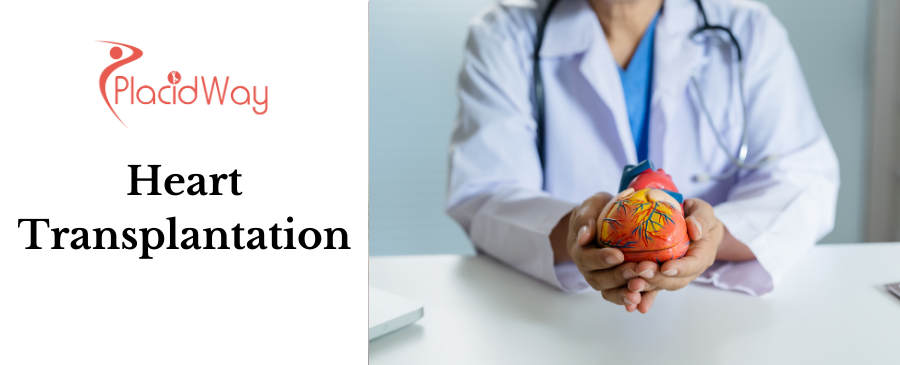
Table of Content
Heart transplantation is a surgical procedure performed to replace a diseased or failing heart with a healthy heart from a deceased donor. It is usually considered for patients with end-stage heart disease who have not responded to other treatments. This procedure is complex and requires precise coordination for successful donor matching, surgery, and post-operative care. Seeking heart transplantation abroad provides access to experienced surgeons and top-quality medical facilities, often at a lower cost than in Western countries.
| Advancement | Description |
|---|---|
| Mechanical Circulatory Support Devices | Devices such as Left Ventricular Assist Devices (LVADs) are used to support heart function while waiting for a donor heart. |
| Donor Heart Preservation Technology | Newer techniques such as organ perfusion allow donor hearts to remain viable for longer, increasing the success rate of transplantation. |
| Improved Immunosuppressive Medications | Advances in medications reduce the risk of organ rejection and minimize side effects, leading to better outcomes post-transplant. |
To find out Different Packages for Heart Transplantation, Click here.
The heart transplantation procedure is a complex surgery that involves several stages. Below is a step-by-step overview:
| Step | Description |
|---|---|
| 1. Preoperative Assessment | The patient undergoes a series of tests to determine eligibility for transplantation and to identify any potential complications. |
| 2. Donor Heart Procurement | A suitable donor heart is identified, and arrangements are made for its retrieval and preservation for the transplant. |
| 3. Anesthesia | General anesthesia is administered to ensure the patient is comfortable throughout the surgery. |
| 4. Removal of Diseased Heart | The failing heart is removed, leaving parts of the atria intact to connect with the donor heart. |
| 5. Implantation of Donor Heart | The donor heart is sewn into place, and blood flow is restored. The heart is monitored for signs of proper function. |
| Country | Average Cost (USD) |
|---|---|
| Mexico | $70,000 - $120,000 |
| Turkey | $80,000 - $130,000 |
| India | $60,000 - $110,000 |
| Thailand | $75,000 - $125,000 |
| Colombia | $70,000 - $115,000 |
| Austria | $150,000 - $200,000 |
| USA | $250,000 - $400,000 |
| UK | $200,000 - $350,000 |
Find Prices for Heart Transplantation Near You: Click here.
The cost of heart transplantation without insurance can vary widely, ranging from $60,000 to $400,000 depending on the country, healthcare facility, and the patient's overall condition.
Recovery from a heart transplant can take 3-6 months. Patients need to attend regular follow-up appointments, take immunosuppressive medications, and follow specific lifestyle recommendations to ensure successful recovery.
Eligibility for heart transplantation depends on the severity of heart disease, overall health condition, and the patient’s ability to adhere to the post-operative care regimen. Patients with severe, irreversible heart failure are typically considered for the procedure.
With proper care, a transplanted heart can last for 10-20 years or longer. Advancements in immunosuppressive medications and post-transplant care have improved the long-term success of heart transplants.
Yes, there is a risk of organ rejection. To minimize this risk, patients must take immunosuppressive medications for life, attend regular follow-up visits, and closely monitor any symptoms of rejection.
If you're considering heart transplantation abroad, PlacidWay can help you find the right medical facility that meets your needs. With a network of accredited hospitals and experienced cardiac surgeons, you can receive high-quality care at a more affordable cost. Get started today and let us help you on your journey towards a healthier heart. Contact us for more information!
Heart Surgery Abroad, Cardiac Care Abroad